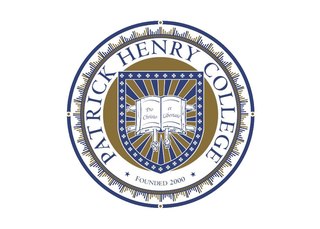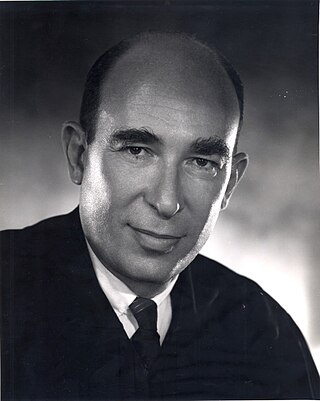Related Research Articles

The Thirteenth Amendment to the United States Constitution abolished slavery and involuntary servitude, except as punishment for a crime. The amendment was passed by the Senate on April 8, 1864, by the House of Representatives on January 31, 1865, and ratified by the required 27 of the then 36 states on December 6, 1865, and proclaimed on December 18. It was the first of the three Reconstruction Amendments adopted following the American Civil War.

Randy Evan Barnett is an American legal scholar. He serves as the Patrick Hotung Professor of Constitutional Law at Georgetown University, where he teaches constitutional law and contracts, and is the director of the Georgetown Center for the Constitution.

Originalism is a constitutional interpretation that asserts that all statements in a constitution should be interpreted based on the original understanding and only changed through amendment.

Harlan Fiske Stone was an American attorney and jurist who served as an associate justice of the U.S. Supreme Court from 1925 to 1941 and then as the 12th chief justice of the United States from 1941 until his death in 1946. He also served as the U.S. Attorney General from 1924 to 1925 under President Calvin Coolidge, with whom he had attended Amherst College as a young man. His most famous dictum was: "Courts are not the only agency of government that must be assumed to have capacity to govern."

Eugene Volokh is an American legal scholar known for his scholarship in American constitutional law and libertarianism as well as his prominent legal blog, The Volokh Conspiracy. Volokh is regarded as an expert on the First Amendment. He is the Gary T. Schwartz Professor of Law at the University of California, Los Angeles, and is an affiliate at the law firm Schaerr Jaffe.

Patrick Henry College (PHC) is a private liberal arts non-denominational conservative Protestant Christian college located in Purcellville, Virginia. Its departments teach classical liberal arts, government, strategic intelligence in national security, economics and business analytics, history, journalism, environmental science and stewardship, and literature. The university has full accreditation from the Commission on Colleges of the Southern Association of Colleges and Schools (SACS-COC) as of 2022. Patrick Henry College continues to be accredited by the Transnational Association of Christian Colleges and Schools (TRACS), which is also recognized as an institutional accreditor by the United States Department of Education. Its graduation rate is 67%.

John Hart Ely was an American legal scholar. He was a professor of law at Yale Law School from 1968 to 1973, Harvard Law School from 1973 to 1982, Stanford Law School from 1982 to 1996, and at the University of Miami Law School from 1996 until his death. From 1982 until 1987, he was the 9th dean of Stanford Law School.
Herbert Wechsler was an American legal scholar and former director of the American Law Institute (ALI). He is most widely known for his constitutional law scholarship and for the creation of the Model Penal Code. The Journal of Legal Studies has identified Wechsler as one of the most cited legal scholars of the 20th century.

Philip Chase Bobbitt, is an American author, academic, and lawyer. He is best known for work on U.S. constitutional law and theory, and on the relationship between law, strategy and history in creating and sustaining the State. He is the author of several books: Constitutional Fate: Theory of the Constitution (1982), The Shield of Achilles: War, Peace and the Course of History (2002), and Terror and Consent: the Wars for the Twenty-first Century (2008). He is currently the Herbert Wechsler Professor of Jurisprudence at Columbia University School of Law and a distinguished senior lecturer at The University of Texas School of Law.
Michael William McConnell is an American jurist who served as a United States circuit judge of the United States Court of Appeals for the Tenth Circuit from 2002 to 2009. Since 2009, McConnell has been a professor and Director of the Stanford Constitutional Law Center at Stanford Law School. He is also a senior fellow at Stanford University's Hoover Institution, and Senior Of Counsel to the Litigation Practice Group at Wilson Sonsini Goodrich & Rosati. In May 2020, Facebook appointed him to its content oversight board. In 2020, McConnell published The President Who Would Not Be King: Executive Power under the Constitution under Princeton University Press.
The unitary executive theory is a normative theory of United States constitutional law which holds that the President of the United States possesses the power to control the entire federal executive branch. The doctrine is rooted in Article Two of the United States Constitution, which vests "the executive Power" of the United States in the President. Although that general principle is widely accepted among legal scholars, there is disagreement about the strength and scope of the doctrine. Steven Calabresi and Christopher Yoo (2008) described the unitary executive theory as ensuring “… the federal government will execute the law in a consistent manner and in accordance with the president’s wishes.” This stands in contrast to other scholarly literature that stresses the fact that federal employees have to faithfully execute the laws enacted according to the process prescribed in the U.S. Constitution.
Alexander Mordecai Bickel was an American legal scholar and expert on the United States Constitution. One of the most influential constitutional commentators of the twentieth century, his writings emphasize judicial restraint.
Bruce Arnold Ackerman is an American legal scholar who serves as a Sterling Professor at Yale Law School. In 2010, he was named by Foreign Policy magazine to its list of top global thinkers. Ackerman was also among the unranked bottom 40 in the 2020 Prospect list of the top 50 thinkers for the COVID-19 era.

David D. Cole is the National Legal Director of the American Civil Liberties Union (ACLU). Before joining the ACLU in July 2016, Cole was the Hon. George J. Mitchell Professor in Law and Public Policy at the Georgetown University Law Center from March 2014 through December 2016. He has published in various legal fields including constitutional law, national security, criminal justice, civil rights, and law and literature. Cole has litigated several significant First Amendment cases in the Supreme Court of the United States, as well a number of influential cases concerning civil rights and national security. He is also a legal correspondent to several mainstream media outlets and publications.

Dale Carpenter is an American legal commentator and Professor of Law at the SMU Dedman School of Law. He formerly served as the Earl R. Larson Professor of Civil Rights and Civil Liberties Law at the University of Minnesota Law School for sixteen years. As a professor, Carpenter specializes in constitutional law, the First Amendment, Due Process and Equal Protection clauses, sexual orientation and the law, and commercial law.

John F. Manning is an American educator and lawyer. Manning is currently the Morgan and Helen Chu dean and professor of Harvard Law School.

Wilfred Feinberg was a United States circuit judge of the United States Court of Appeals for the Second Circuit and previously was a United States District Judge of the United States District Court for the Southern District of New York.
In the United States, right to keep and bear arms is a fundamental right protected by the Second Amendment to the United States Constitution, part of the Bill of Rights, and by the constitutions of most U.S. states. The Second Amendment declares:
A well regulated Militia, being necessary to the security of a free State, the right of the people to keep and bear Arms, shall not be infringed.
Gerald Gunther was a German-born American constitutional law scholar and a Professor of Law at Stanford Law School from 1962 until his death in 2002. Gunther was among the twenty most widely cited legal scholars of the 20th century, And his 1972 Harvard Law Review article, "The Supreme Court, 1971 Term Foreword: In Search of Evolving Doctrine on a Changing Court: A Model for a Newer Equal Protection," is the fourth most-cited law review article of all time. Gunther's path-breaking casebook, Constitutional Law, originally published in 1965 and now in its 17th edition, is the most widely used constitutional law textbook in American law schools.
David E. Pozen is a Charles Keller Beekman Professor of Law at Columbia University who specializes in constitutional law and information law. Pozen has written extensively in the area of constitutional law.
References
- 1 2 3 4 "Henry P. Monaghan". www.law.columbia.edu. Retrieved 2022-05-03.
- ↑ Reid, Amanda (2020-10-27). "Monaghan, Henry P. First Amendment Due Process, 83 Harv. L. Rev. 518 (1970)". Rochester, NY. SSRN 3720586.
{{cite journal}}: Cite journal requires|journal=(help) - 1 2 "Henry P. Monaghan to Be Honored for Body of Scholarship on Federal Courts". www.law.columbia.edu. Retrieved 2022-05-03.
- ↑ "Henry P. Monaghan". oyez.org. Retrieved 2022-05-03.
- ↑ "Law Professors and AALS Duke It Out Over Annual Meeting". news.bloomberglaw.com. Retrieved 2022-05-03.
- ↑ "A conservative Columbia law professor defends constitutionality of Affordable Care Act". TheGrio. 2012-04-16. Retrieved 2022-05-03.
- ↑ "Henry P. Monaghan". American Academy of Arts & Sciences. Retrieved 2022-05-03.